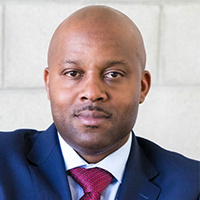Valyermo Criminal Lawyer, California
Sponsored Law Firm
-
 x
x

Click For More Info:
-
Lessem, Newstat & Tooson, LLP
3450 Cahuenga Blvd W Unit 102 Los Angeles, CA 90068» view mapCriminal Defense Your Fight Is Our Fight.
Our team is ready to represent individuals in need of strong, aggressive personal injury or criminal defense as it pertains to one's mental health.
800-805-4781
Vincent W. Davis
✓ VERIFIEDMr. Davis is the founder and lead attorney of the Law Offices of Vincent W. Davis & Associates. Since 1986, Mr Davis' practice cover all areas of law ... (more)
Richard Elia Nahigian
✓ VERIFIEDDefense attorney Richard Nahigian is the founder and managing attorney of the Law Offices of Richard Nahigian, based in Pasadena, California. Richar... (more)
Antonio Jose Bestard
✓ VERIFIEDAntonio J. Bestard has 40 years of experience, and is prepared to manage the complexity issues of criminal law. Mr. Bestard is Certified Legal Spec... (more)
Azad Jingozian
✓ VERIFIEDMr. Jingozian has an extensive background in criminal law, focusing on white-collar offenses, including misdemeanor infractions and felony crimes such... (more)
David Richard Johanson
✓ VERIFIEDDavid assists clients in general corporate matters and in employee ownership, benefit, ERISA, and related business matters, with an emphasis on execut... (more)
FREE CONSULTATION
CONTACTAni Akopyan
FREE CONSULTATION
CONTACT J. Tooson Los Angeles, CA
J. Tooson Los Angeles, CA Practice AreasExpertise
Practice AreasExpertise





